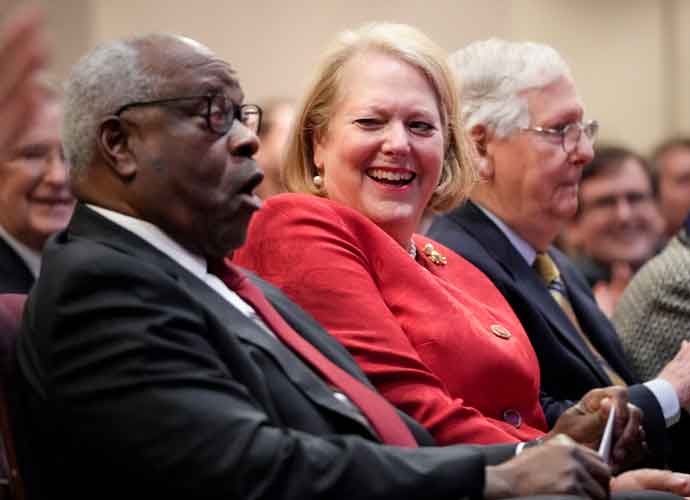Clarence Thomas’s Call For Supreme Court To Overturn Gay Marriage Rights Alarms LGBT Groups
Supreme Court Justice Clarance Thomas wrote in a concurring opinion written that went with the decision overturning Roe v. Wade that the Supreme Court should also “reconsider” past rulings on contraception and same-sex marriage – words that have struck fear in into the hearts of LGBT and women’s rights activists.
The cases he refers to are Griswold v. Connecticut, Lawrence v. Texas and Obergefell v. Hodges. In his opinion, Thomas said that the decisions “were demonstrably erroneous decisions.” The rulings Thomas referenced, if reversed, would enable conservative states to outlaw gay marriage and ban contraceptives.
The Supreme Court justice also showed an interest in reversing previous rulings that would make suing news organizations difficult for defamation.
In his concurring opinion, Thomas noted that the 14th amendment did not contain abortion as a “liberty” that was protected by the due process clause.
Subscribe to our free weekly newsletter!
A week of political news in your in-box.
We find the news you need to know, so you don't have to.
“The Court well explains why, under our substantive due process precedents, the purported right to abortion is not a form of ‘liberty’ protected by the Due Process Clause,” Thomas wrote.
The justice continued further and stated that abortion “is neither ‘deeply rooted in this Nation’s history and tradition’ nor ‘implicit in the concept of ordered liberty.'”
Despite Thomas’s rhetoric, other justices have voiced their disapproval of letting the new decision upset other past rulings. Justice Samuel Alito assured the public that the court had no interest in making such a move.
“Our decision concerns the constitutional right to abortion and no other right,” Alito said in a statement. “Nothing in this opinion should be understood to cast doubt on precedents that do not concern abortion.”
Get the most-revealing celebrity conversations with the uInterview podcast!







Leave a comment